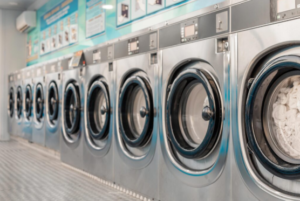
Hydraulic systems are vital for the smooth operation of various machinery, from construction equipment to manufacturing machines. One key component that ensures these systems function efficiently is the hydraulic seal. Choosing the right hydraulic seals is crucial to maintain performance, prevent leaks, and extend the life of your machinery. This guide will help you understand how to select the appropriate seals for your equipment.
Understanding Hydraulic Seals
Hydraulic seals are components that prevent fluid leakage in hydraulic systems. They are placed in areas where fluids, such as oil or water, need to be contained under high pressure. Without proper seals, machinery can lose efficiency, suffer from contamination, and even experience breakdowns. Hydraulic seals come in different shapes, sizes, and materials depending on the type of machinery and the pressure they need to withstand.
Consider the Type of Machinery
The first step in choosing the right hydraulic seals is to consider the type of machinery you are working with. Different machines have varying pressure requirements, operating temperatures, and fluid types. For instance, construction equipment like excavators often works under heavy loads and high pressure, requiring seals made of durable and heat-resistant materials. On the other hand, lighter machinery, such as industrial pumps, may require seals designed for moderate pressure and temperature. Matching the seal to the machinery ensures optimal performance.
Evaluate Operating Conditions
Operating conditions are another critical factor when selecting hydraulic seals. Consider the temperature, pressure, and exposure to chemicals that the seal will face during operation. High temperatures can cause some materials to degrade quickly, while extremely high pressures may require seals with stronger construction. Similarly, if your machinery works with aggressive fluids or chemicals, you need seals that resist corrosion and chemical damage. Evaluating these conditions helps prevent premature wear and failure of the hydraulic seals.
Choose the Right Material
Hydraulic seals are made from various materials, including rubber, polyurethane, PTFE, and metal-reinforced compounds. Each material has specific advantages depending on the application. Rubber seals are flexible and work well for moderate pressure and temperature applications. Polyurethane seals are known for their strength and resistance to wear, making them suitable for high-pressure machinery. PTFE seals provide excellent chemical resistance and perform well in extreme temperatures. Understanding the material properties and matching them to your machinery’s requirements is essential for longevity and performance.
Consider the Seal Design
The design of hydraulic seals is equally important. Common designs include rod seals, piston seals, wiper seals, and O-rings. Rod seals prevent leakage along the piston rod, piston seals maintain pressure inside cylinders, and wiper seals keep contaminants out. O-rings are versatile and can be used in various applications. The choice of design depends on the specific function the seal needs to perform within the machinery. Selecting the correct design ensures proper sealing and prevents leaks that could damage the system.
Check Compatibility with Fluids
Hydraulic systems often use different types of fluids, such as mineral oils, synthetic fluids, or water-based solutions. It is vital to ensure that the hydraulic seals you choose are compatible with the fluids in your machinery. Using a seal that reacts negatively with the fluid can lead to swelling, cracking, or failure, resulting in costly repairs and downtime. Confirming fluid compatibility will protect the seal and maintain smooth machinery operation.
Consult Manufacturers and Experts
When in doubt, it is wise to consult the hydraulic seal manufacturer or a machinery expert. Manufacturers provide detailed specifications for each seal, including pressure limits, temperature range, and chemical resistance. Experts can recommend the best type of seal for your specific machinery, helping you avoid mistakes and reduce maintenance costs. Their guidance ensures that you invest in the right hydraulic seals for long-term reliability.
Maintain and Replace Seals Regularly
Choosing the right hydraulic seals is only part of the process. Regular maintenance and timely replacement are essential for keeping your machinery in optimal condition. Inspect seals for signs of wear, cracks, or leaks, and replace them as needed. Proper maintenance extends the life of both the seals and the machinery they protect.
Conclusion
Hydraulic seals play a crucial role in the efficiency and durability of machinery. Selecting the right seals involves understanding the type of machinery, evaluating operating conditions, choosing appropriate materials and designs, ensuring fluid compatibility, and consulting experts when needed. By carefully considering these factors, you can prevent leaks, reduce maintenance costs, and ensure smooth operation for your hydraulic systems. Proper care and maintenance of hydraulic seals will contribute significantly to the longevity and performance of your machinery.





